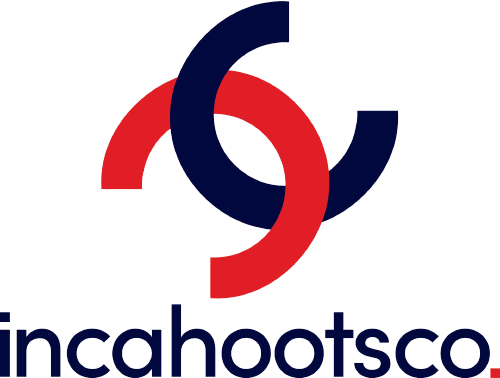Sublease opportunity for professionals or freelancers - check it out!
Be seen. Be heard. Be found.
Ipswich Economy
The future of Ipswich Business in a COVID-19 world.
How will Ipswich business adapt to a new normal?
Thanks to Executive Outlook 2022, an exclusive initiative produced by Jan Gadsen from Top Office Group and Sequel Insights, I now have a better idea about what’s to come for our city, what’s keeping my fellow business owners awake at night, the trends we all need to embrace, and the challenges we are yet to face.
As we all know, COVID-19 has affected all sectors of the economy since it reared its ugly head in 2020. Few industries have made it this far unscathed, with hospitality, retail, manufacturing, transport and warehousing, sport and entertainment, education, and travel hit the hardest.
Businesses have been forced to reinvent themselves, repeatedly, creating new products, services, and income streams, and working out how to operate in a COVID-19 world … the new normal.
Local Ipswich business
Local business owners have had to navigate staff shortages, a moveable feast of restrictions, log-in apps and COVID ticks, lockdowns (real and shadow), pressure to become more digitally savvy (and quickly), supply chain challenges … and the list goes on.
So, what is the state of play when it comes to the local economy and business sentiment in Ipswich?
As a local business owner, it’s something I want to better understand. Are we the norm when it comes to operating a business in a COVID world? Are our peers facing the same challenges?
Thanks to Executive Outlook 2022, an exclusive initiative produced by Jan Gadsen from Top Office Group and Sequel Insights, I now have a better idea about what’s to come for our city. The report, the result of considerable research, discussions and engagement with local business owners and industry experts considered the areas of business confidence, challenges, remote working, areas of skills shortage and hiring intentions and trends.
The survey explored business sentiment and took the pulse of leaders across the region, for the 13th year running. So, what’s the economic outlook for Ipswich? The excellent news is that 68 per cent of local businesses surveyed are optimistic about the future. Yay!
Major trends and insights
Let’s cover off some of the major trends and insights revealed in the report. Most businesses have struggled (and are still struggling) – not earth shattering news.
Companies exposed to restrictions and supply chain backlogs took a hit.
Businesses are struggling to deal with new regulations, and the burden on business leaders to develop new systems showed up repeatedly in interviews
Staff shortages continue to be a concern across the board.
- 85 per cent of local businesses are experiencing a skills shortage
- Talent is in the driver’s seat
- There is an unprecedented demand for healthcare, aged care, disabilities, allied services, and supply chain workers
- Delivery and logistics sector workers are required to service the mass shift to online sales
- Three in four local businesses are struggling to find staff
- It’s becoming increasingly difficult to meet salary expectations
- Staff want flexible working arrangements
- Forward-thinking and flexible businesses will win the talent game
The IT sector forged ahead to support businesses during COVID
- Businesses were forced to become more visible online and invest in their digital marketing presence (we certainly can vouch for this!)
- Increase in e-commerce
- However, cybersecurity has become a business’ number one threat – cybercrime and ransomware attacks are on the rise
- ACSC reports cybercrime and ransomware attacks were up 13 per cent and 15 per cent respectively last financial year
The greatest shortages are being experienced in:
- Skilled trades (across the board)
- Project/operations managers
- Business developers
- Procurement
- Logistics staff
- Finance specialists
- Digital marketers
- Cybersecurity specialist
INSIGHTS CONTINUED
Flexible working environments are here to stay
- Staff want to work from home and the office – a hybrid model
- Provides an opportunity to combat skill shortages, slash travel and cut costs
- Leaders now needs to focus on performance measured on results, not hours spent at a desk
- Staff are more agile, productive, and engaged
- Team cohesiveness is still a challenge – staff miss the social interaction
- Business owners need to be aware of the potential for lost productivity
- Keeping teams inspired, productive and healthy is top of mind for business owners, and they’re now more in tune with their staff, and the pressures they are feeling
- The key to success is developing clear conditions and expectations
- Younger workers especially want the choice – they will use flexible working conditions as a bargaining tool
Businesses had to learn to “pivot” by …
- Ramping up technology without losing the human touch
- Educating their clients on shifting market dynamics
- Upskilling staff and technology to meet the rapid change
- Turning to digital marketing, webinars and virtual product launches to grow their brands
- Seizing opportunities to service the burgeoning local luxury market
- Offer work from home flexibility, during lockdown and after – 52 per cent of businesses now operate on a hybrid model, which is here to stay
- Property prices are through the roof (house pun intended)
- Ipswich experienced the highest sales growth in Queensland in 2021 (realestate.com.au)
- Huge growth in sales and leasing of industrial properties in the region
- 18 per cent growth predicted for the local Ipswich region in 2022
- However, local real estate agents faced a shortage of stock to meet the market in 2021
Manufacturing
-
People are turning to local Queensland manufacturers
- We have an incredible manufacturing story to tell
- The supply chain crisis has opened up the potential to customise local products to suit the market
-
The massive injections of government stimulus helped drive confidence and hiring in the region … for a while
- The “shadow lockdown” hasn’t helped matters and businesses are struggling without this financial support
-
Building costs have skyrocketed
- Global shortage of building related supplies has blown out delivery times and considerably increased prices
-
Shopping and freight costs have increased exponentially, which makes importing and exporting even more expensive
- Freight hikes, delays, and container shortages = a perfect storm
- For example, freight costs for 40-foot shipping container out of China jumped from $500 US to $13,500 (in 18 months), with limited spaces available shortage of stock to meet the market in 2021
It’s not all bad news
Far from it, in many cases. There are many silver linings and opportunities that can be realised. And as small business owners, we have very little choice other than learning to operate – and excel – in a COVID world. After all, this is the new normal.
So how do we do this? How do we attempt not just to survive but to thrive?
By doing our best to proactively prepare for and manage the trends and challenges addressed in Executive Outlook, while constantly pivoting and innovating to ensure the continued growth of our businesses.
Yes, it can be overwhelming and exhausting, but it can be done. We’ve all come this far!
To view the Executive Outlook 2022 report, head to
https://topoffice.com.au/presentation-highlights-from-executive-outlook/
In Cahoots Co is an Ipswich based digital marketing and storytelling agency who take a business centric approach to strategic communications, digital marketing, content creation and website development. We can assist your business with capability statements, business communications (internal and external) professional collateral creation and more.
CONTACT DETAILS
Your strategic digital marketing partner in Ipswich.
Phone: 0419 197 431
Email: hello@incahootsco.com.au
Office: Shop D 180 Brisbane Street Ipswich, Queensland 4305
WHAT WE DO
QUICK LINKS










